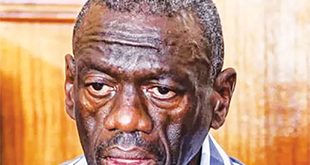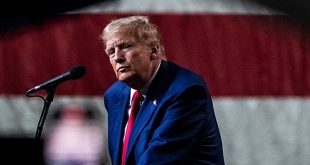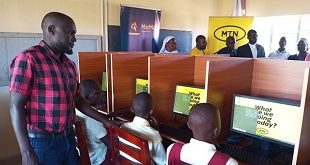
By Haggai Matsiko
Is she the reason Uganda’s most expensive parliament cannot deliver?
The Speaker of Parliament, Rebecca Kadaga, continues notching good ratings in opinion polls and among commentators on public affairs. However, the same cannot be said of her House and its 385 legislators. In a recent poll by Research World International (RWI), only 5% of those polled said they were highly satisfied with the performance of parliament.
For the majority, 21%, the 9th parliament has been average. Another 10% said they were not satisfied at all.

Interestingly, the same Ugandans overwhelmingly mentioned Kadaga as the person they would vote for president in case President Yoweri Museveni does not contest in 2016. What explains the public feelings against MPs but in favour of Kadaga?
Lofty speeches
Partly, it could be that Kadaga, after 25 years as MP, has learnt to say things that excite the public.
As parliament marked 50 years of Uganda’s independence in September 2012, for example, Kadaga told MPs they had an historic task of giving it its “identity, mission, vision, and ethos”.
“Every period and every parliament in the life of a nation has a historic task,” she said, “The ninth Parliament must discover and define its historic task in its five year-term. It must discover its identity through a serious and scientific study of the skills, expertise, experiences, capabilities, qualities, interests and commitments of its members. Only then will parliament fully tap the resources and contribution of each member for the achievement of the common good.”
Two years later, Stephen Hippo Twebaze, a Research Associate at the African Legislatures Project (APL) which tracks the performance of parliaments in 20 African countries, says “The 9th parliament has already run out of steam”.
Hippo Twebaze adds: “This parliament has a huge capacity, it has more committees, more money but when you look at their output; passing of bills, committee work, it is operating below its capacity.”
He says that both oversight and legislative business are suffering because legislators never make time for formal deliberation and that the pace of the legislative process is slow.
“A lot of plenary time is spent on matters of national importance, which include issues not formally on the order paper. This leaves parliament with a lot of backlog,” he says, adding that as Speaker Kadaga has conceded the situation is likely to worsen.
“In this 4th Session people will be more concerned about how to return to parliament than on parliamentary work,” Twebaze says. He adds that pressure over re-election has already set in.
In March, ALP produced an article entitled: “Are African politicians value for money?” It quoted outspoken MP, Ibrahim Ssemujju, Kyadondo East), from the biggest opposition party, the Forum for Democratic Change (FDC), who said MPs have “lost their bite”.
Ssemujju says: “At the start, [June 2011] this parliament had the ability to hold the executive accountable. Now they don’t have it. Towards the end, the MPs start to position themselves for the upcoming election. They are vulnerable to bribes and all sorts of inducements”.
A lot is at stake for legislators. In the 2011 election, 120 members of the 8th parliament were voted out – including 18 cabinet ministers.
With that in mind, MPs are already more keen to appease their constituents rather than conduct their legislative work.
That is partly why MPs from the ruling party, NRM, were quick to create and seize the chance to traverse their constituency to “sell President Museveni’s sole candidature” amongst other party business.
The Shs4 million each MPs was given has sparked criticism, with opposition MPs saying it was picked irregularly from state coffers. But the NRM MPs who received it had a chance to splash some on their constituents and campaign for 2016.
Not living up to the bang
With three critical sessions behind the ninth parliament, The Independent considers this a good time to evaluate the achievements of 9th parliament.
Having started with a bang, observers say there is no doubt the 9th has not followed on its promises with action.
Initially, parliament debated contentious topics like the oil-bribes scandal that sucked in the Prime Minister, Amama Mbabazi, and several cabinet colleagues. It debated the controversial death by poisoning of Butaleja District Woman MP, Cerina Nebanda that sucked in President Yoweri Museveni, and the US$65 million dubious compensation to the head of the NRM Entrepreneurs League, Hassan Basajjabalaba. Other scandals debated included the health budget, electricity sector probe, the Aronda Nyakairima appointment saga.
The 9th parliament also got ministers to resign over corruption. Kabakumba Matsiko, Syda Bbumba, and Kiddu Makubuya were among its victims. While Kabakumba was expelled for misappropriation of equipment belonging to the national public broadcaster, the Uganda Broadcasting Service (UBC), Bbumba and Makubuya were censored over the Shs.169 billion involving Basajjabalaba.
In the second session, MPs forced the government to make considerable adjustments to the budgets of education, agriculture and health.
Such pressure which the 9th parliament initially exerted put it on a collision course with the executive. This led to allegations of a fall out between Kadaga and Museveni.
As the country heads into the 2016 presidential and parliamentary elections, Kadaga is constantly looking over her shoulder to ensure that Museveni does not sponsor a challenger against her for the Kamuli District Woman’s seat she has held since 1989. Even if she retains it, however, observers say Museveni is determined to have her removed as Speaker in 2016 and replaced by her deputy, Jacob Oulanyah.
Money politics
But that might not be easy. Obsevers says Kadaga, like Museveni, has discovered a new way to guarantee her popularity; money. She appears determined to preside over the most expensive parliament Uganda has had and has positioned herself as a tough talker who can negotiate with Museveni unlike Oulanyah who is a “yes” man.
From a budget of Shs232 billion in the 2012/13 Financial Year, government expenditure on the legislature has gone up by 12% to Shs258 billion in the 2014/15 FY. Over the same period, the wage bill of parliament has risen by 18% from Shs17 billion to Shs20 billion.
In fact, the Parliamentary Commission has said they need Shs348 billion for the next financial year. That is an extra Shs111 billion compared to last year’s Shs 237 billion.
The Commission says it needs the extra money to cater for increased salaries of employees who have been promoted and new recruits and not MPs. It says 155 employees were promoted, 48 new ones were recruited and an on-going recruitment will see 57 vacant posts in parliament administration filled.
Opposition MP Medard Segona (Busiro East) says such demands “portray legislators as vampires”.
There was uproar earlier in its term when Parliament spent about Shs40 billion on brand new cars for the MPs. The Speaker and her deputy also got brand new Mercedes Benz vehicles as ceremonial cars on top of the latest V8 Toyota Land Cruisers for up country travel.
Such cars required decent parking. That is why legislators last year got themselves a five level parking complex that cost Shs 36 billion. This year, they are allocating another Shs35 billion for the security equipment of the parking lot.
On top of this, each legislator also got a brand new ipad last year. In total these gadgets cost the tax payer about Shs800 million.
Reports indicate that in 2011 legislators also secretly voted to have their salaries increased by 38%. While MPs earn a salary of Shs 2.6 million, allowances bring their earnings to, on average, Shs15 million per month.
The MPs have also been pushing to have all their allowances consolidated into one package. Moses Bwalatum, the acting Parliament Public Relations Manager, told The Independent, this would push up their gratuity.
Clearing backlog
While Kadaga cannot address some of the disappointments like the soaring cost of parliament, she also faces a tough job making sure the legislators clear the backlog from the Third Session of parliament and accomplish the tasks of the Fourth Session.
Performance figures tabled by the Parliamentary Commission, which oversees all parliamentary business, shows that in the Third Session, The 9th parliament passed only 19 bills, only 32 in all their three years out of the 98 Bills presented, handled 46 committee reports, 29 motions, 32 ministry statements, held 844 committee meetings, disposed of 13 petitions and dealt with 6 questions.
Stephen Tashobya (MP Kajara County), who is the Chairman of the Legal and Parliamentary Affairs which oversees the work of the Parliamentary Commission, says the House is “doing badly”.
The 8th parliament, for example, passed 93 Bills. The 9th parliament has also fallen short on following up question put to cabinet ministers. By the end of the 2nd session, out of the 63 questions put to ministers, only 11 had been answered.
Rosemary Seninde (MP, Wakiso district), who is one of the parliamentary commissioners rejected the allegations of underperformance.
“I know that we have tried our level best,” she told The Independent, “that is not to say there are no challenges.”
Another Parliamentary Commissioner, Rose Akol, and the Director Finance and Administration, Okello Obabaru recently told the Legal and Parliamentary Affairs Committee that parliament was facing a performance and resources strain.
They said `Special Sittings’ in honour of deceased colleagues were adding to the strain. The 9th parliament has lost six members and about 14 former legislators for whom special sessions have been convened.
“We take a full day paying respect to persons who have passed away. We have set a precedent. We must be able to perform our duties as we pay our respects to the dead,” Akol said.
When parliament returned from recess on June 5, Kadaga appeared to be aware of the challenges ahead as she cautioned the legislators to beware there is work to be done.
Yet unlike on Dec.19 last year, when she announced she would enforce the 45 day rule for Bills referred to all committees and impose a ban on travel out of Kampala for committees of parliament in order to get the House accomplish its tasks, the Speaker knows with this as the Fourth Session of parliament, it’s going to be characteristically difficult to get legislators to concentrate.
That is why she had said that the Third Session was the 9th defining one of parliament’s five-year term.
Having been in parliament for the last 25 years, Kadaga knows that after the third session, it becomes hard for a legislator to give their best to legislative work.
Part of the work that needs to be done in the 4th Session includes the 21 Bills that President Yoweri Museveni, in his State of the Nation address, asked parliament to address. Among these, parliament has to amend electoral laws, which include the Presidential Election Act, 2005, the Parliamentary Elections Act 2005, the Electoral Commission Act, Cap 140, the Local Government Act, and Cap. 243 of the Political Parties and Organisations Act, 2005. With the 2016 general elections around the corner, these need to have been amended.
Debts and absenteeism
The other challenge that legislators do not talk about openly is the burden of debts. In July 2013, the government-managed newspaper, The New Vision, run a story alleging that although MPs are among the most highly paid Ugandans, earning about Shs20 million (Approx. US$8,000) per month on average minus allowances, most are heavily indebted.
At the time of the New Vision story, MP Simon Peter Aleper (Moroto Municipality) had just been dragged a fellow MP for failure to pay a Shs70 million loan.
Another MP, Florence Kintu (Kalungu District Woman) was also dragged to court twice for allegedly failing to pay Shs40 million she borrowed from a money lender. She had also allegedly failed to pay Shs10 million borrowed from another money lender.
The New Vision story claimed they had appealed to Museveni “to rescue them from their choking loans”.
The MPs either deny or are unwilling to talk about the debt situation although sources familiar with the salary office at parliament say about 30 take home nothing and others a paltry Shs100,000 (Approx.US$40) per month. The rest goes into their debt servicing.
Museveni appears to have found a way of giving each MP an extra buck.
MPs were controversially given Shs5 million each to traverse their constituencies and sensitise people about the Marriage and Divorce Bill, which they are yet to pass. This makes a total of Shs1.8 billion.
In 2011, legislators had also got Shs20 million each to evaluate the work of the National Agriculture Advisory Services (NAADs) programme. Shs 7.5 billion was spent.
Meanwhile, some MPs fail to report to parliament as they evade debt collectors. As a result, parliament often fails to transact business.
Rubberstamp parliament
Even when MPs are in parliament, Norbert Mao, a former MP who now heads the opposition Democratic Party (DP) says there is still trouble because “NRM caucusing has killed debate in parliament.”
He is referring to what has become a habit of President Museveni to ferry NRM MPs away from parliament almost every week to attending to party business or its caucus.
“Museveni has turned parliament into a stage for rubberstamping decisions,” he says, “The caucus is for choreographing and parliament rubberstamping.”
Gerald Karuhanga agrees and adds that the bigger problem of parliament is that the NRM MPs have misused their majority by always “putting their party interests before national interest”.
“MPs have also ignored serious issues like corruption simply because they feel that these are not serious concerns to their party,” says Karuhanga who also sits on the Legal and Parliamentary Affairs Committee, “That is why you had unfortunate laws like the POM Bill going through.”
The President’s NRM party also singled out so-called `rebel MPs’ who refused to comply with party directives and expelled them from the party.
The MPs included Theodere Sekikubo, Barnabas Tinkasimire, Mohammad Nsereko and Wilfred Niwagaba. Their expulsion seems to have had a chilling effect of aggressive debate of issues in parliament. The MPs appear to have resorted to their survival mode as voting machines. That is one thing you cannot blame on Kadaga.
 The Independent Uganda: You get the Truth we Pay the Price
The Independent Uganda: You get the Truth we Pay the Price


